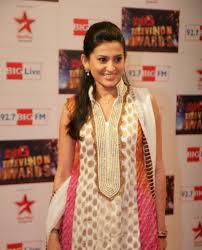


People come together to defeat an enemy but nothing much changes when the enemy isn’t around. However, it seems to stop at the point of resistance. It celebrates the power of people when confronting Big Capital. It is about a mass leader who empowers a group of people to ‘overthrow’ an unjust ruler. And they seem to wrangle with one half each of our ‘liberal democracy’ predicament. Ranjith’s involvement in both, couldn’t help but see them as companion pieces. I watched Pariyerum Perumal and Kaala recently, and, if only because of Pa. Not only do we not respect individual rights and wishes, we also look suspiciously, occasionally react violently, on individuals who seem to threaten status quo or try to chart a new path. We seem to identify ourselves and others via castes and communities, and our relationships are mediated by those group identities. With the liberal part of the phrase though, we’ve always had a troublesome relationship. Despite our obsession with gods and heroes in culture, politically we are aware of our power, and right, to dispose off politicians. As a people, we’ve grasped the democratic part of it intuitively, even viscerally. Kathir gives an extraordinary physical performance, but in close-ups, he takes us into Pari’s soul. Here, we see his helplessness, his humiliation. In a film like Kadhal, we register the victim’s pain. Second, it’s what happens when angry youths from Jo’s community break into the room and begin to beat up Pari.

He doesn’t seem to hate Pari, but he’s bound by society. Is it a veiled threat or a father’s desperate plea? Marimuthu’s carefully shaded performance brings out this dichotomy superbly. He doesn’t go: How dare you be friends with my daughter? His reaction contains more fear and sadness than rage: Do you think it’s wise doing this? If you continue, my people will kill not just you but also my daughter. You’ve seen it in several class- and caste-based films - Balaji Sakthivel’s Kadhal, for instance.īut two aspects stand out. (The wedding hall is named after her, so you know how wealthy she is.) There, her father (Marimuthu), takes Pari by the hand and leads him to a room. She helps him English, a language he doesn’t know and the language the lecturers at college conduct classes in. Jothi Mahalakshmi, aka Jo (Anandhi), is an upper-caste classmate - she’s also upper-class. He finds himself a fish out of water when he joins the Government Law College in Tirunelveli. Pari - for the purposes of this review, let’s call him that - is a lower-caste youth from a small village.
Pari odia serial charu heroine original name full#
Read the full review on Film Companion, here: Īriyerum Perumal (The God on a Horse) is the name of both Mari Selvaraj’s film and its protagonist (Kathir).


 0 kommentar(er)
0 kommentar(er)
